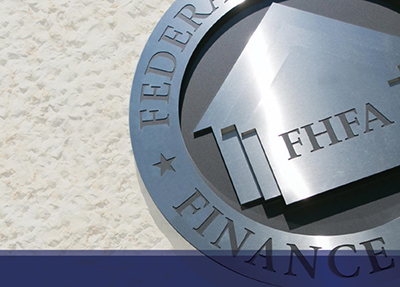
FHFA, GSEs Detail Equitable Housing Finance Plans

The Federal Housing Finance Agency on Wednesday offered details of the government-sponsored enterprises’ Equitable Housing Finance Plans for 2022-2024.
“The Equitable Housing Finance Plans represent a commitment to sustainable approaches that will meaningfully address the racial and ethnic disparities in homeownership and wealth that have persisted for generations,” said FHFA Acting Director Sandra Thompson. “We look forward to working with the Enterprises, lenders and other housing industry participants to further develop the ideas described in these plans.”
In September 2021, FHFA instructed Fannie Mae and Freddie Mac to develop Equitable Housing Finance Plans that identify and address barriers to sustainable housing opportunities, and include the Enterprises’ goals and action plans to advance equity in housing finance for the next three years. In June, FHFA released the Enterprises’ Equitable Housing Finance Plans for 2022-2024.
MBA President & CEO Robert Broeksmit, CMB, issued the following statement in response to the FHFA summary:
“MBA commends FHFA and the GSEs’ proactive efforts to develop targeted, actionable plans to close the nation’s long-standing racial homeownership gap and to make affordable rental housing available on a more equitable basis.
“The GSEs’ plans – focused on a typical consumer’s housing lifecycle – should allow for increased opportunities for minority households to secure affordable rental housing, prepare for homeownership and obtain access to safe and affordable mortgage credit. While the plans are targeted to Black and Hispanic borrowers, all low- and moderate-income borrowers and communities should benefit.
“The path to sustainable homeownership often starts with renting. MBA appreciates the GSEs’ emphasis on enhancing existing products and developing offerings to encourage the rehabilitation and creation of new multifamily rental housing. Addressing stubbornly low rental housing supply levels, and helping renters manage security deposits and build a payment history, are key areas to address that can facilitate future homeownership.
“MBA is also pleased to see the commitment to exploring the expansive use of Special Purpose Credit Programs (SPCPs) to increase access to mortgage credit to traditionally underserved communities. MBA has been at the forefront of encouraging regulators, the GSEs, and lenders to facilitate the creation of effective SPCPs. The use of SPCPs will be particularly important for core mission borrowers, especially minority groups who may not have generational wealth to use to save for a down payment.
“Close partnership with FHFA, the GSEs, HUD, civil rights groups and other key stakeholders will help to ensure the equitable housing finance plans are innovative, successful, flexible to improvements, and achieve the core mission of sustainable access to homeownership, while maintaining the safety and soundness at the GSEs. Furthermore, we appreciate the promise for transparency on pilot programs to ensure that they have clearly defined objectives, are time-delimited, and – if deemed successful – eventually made available to all eligible lenders regardless of size or business model.
“MBA looks forward to industry collaboration on the ideas and programs in these plans.”
The FHFA summary is as follows:
The Enterprises’ Plans are a Meaningful Step Forward
• The Plans address barriers experienced by renters, aspiring homeowners and current homeowners before, during and after getting a mortgage.
• Taken together, the activities in the Plans strive to empower communities with financial education, affordable multifamily housing, increased tenant protections and reduced financing costs.
• The Plans recognize that unsustainable credit is not equitable credit. The activities are focused on removing unnecessary barriers and using technology to identify ways to responsibly serve more borrowers, without weakening credit standards that put a family’s home – often, its largest source of wealth – at risk.
• The Plans will continue to evolve and mature over time based on annual reviews that incorporate lessons learned, new research published and emerging issues.
Continued, Close Partnerships with Industry Participants and the Public are Key to the Plans’ Success
• The Enterprises cannot achieve their shared goal of creating an equitable housing finance system without the willingness, cooperation and commitment of the entire mortgage industry.
• The Plans are the start of a conversation in which the GSEs look forward to continuing their close collaboration with lenders, civil rights leaders, consumers, mortgage insurers and other industry participants to facilitate the success of the Plans.
• Listening, understanding and incorporating operational complexities and on-the-ground knowledge of those working directly with consumers, as well as consumers themselves and those who advocate on their behalf, is a centerpiece of the Plan development process.
Plan Activities are Subject to Further Development and Rigorous Review by FHFA
• The activities in the Plans have not been pre-approved by FHFA.
• Similar to the Enterprises’ Duty to Serve Plans, each activity contemplated as part of a Plan will be subject to safety and soundness reviews, ongoing engagement with our partners, and further refinement and development.
FHFA is Committed to Providing Transparency of Plan Activities
• Many activities will test new concepts for the first time. Concurrent with the Plan releases, FHFA has taken steps to increase the transparency of the Enterprises’ pilot activities.
• Increased transparency will strengthen FHFA’s ability to foster dialogue with stakeholders and the public, improve program design and spur innovation.
Fannie Mae and Freddie Mac each published a page on their respective websites that lists current pilots:
